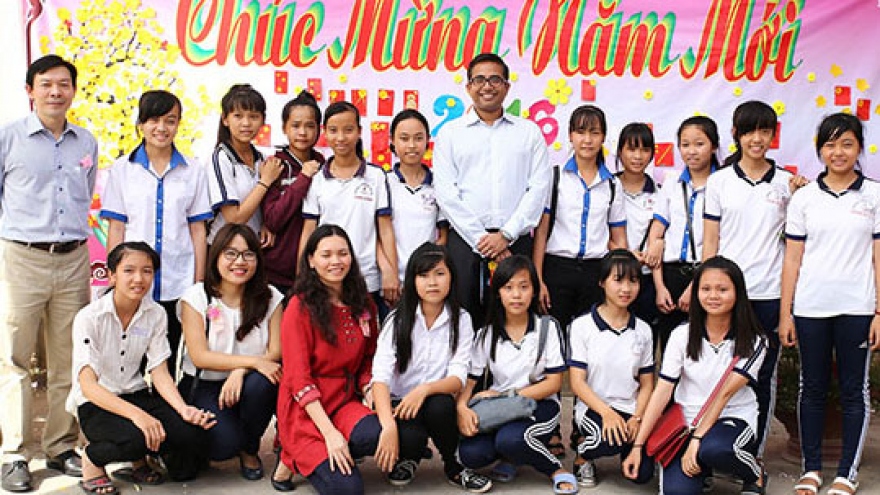Monsanto’s modern approach to workforce
The 21st century workplace is experiencing swift changes due to globalisation and technology. As this phenomenon continues, Jaideep Iyengar, commercial HR lead for Asia at Monsanto Company, spoke with VIR’s Nam Phuong on new competencies required for modern employees.
 |
| Jaideep Iyengar, commercial HR lead for Asia at Monsanto Company. |
It’s evident that technology and innovation are changing various aspects of the world, including businesses. Thanks to the Internet and other technological developments, companies can expand their business across cultures more easily.
Moreover, there has been a distinct shift towards Asia and other developing markets. Specifically, in 2010, 73 per cent of 8,000 firms that earned revenues of over $1 billion were headquartered in developed countries. In 2025, it’s predicted that the number of $1-billion-revenue companies will rise to 15,000 – and only 45 per cent of them will be based in Europe, North America, or other developed markets.
It is easy to understand why Asia is getting more attention from businesses. The population in developed countries is getting older, while emerging markets such as Vietnam enjoy a young, growing population, who are both potential workers and consumers. As a result of this shift and technological advances, the global workplace is becoming more multi-cultural and able to adapt to constant changes.
In what ways do these changes affect companies’ human resources? What are the new competencies that employers look for in their staff?
As technology becomes more complex and businesses spread out around the world, company leaders truly feel that employees can’t operate alone and teamwork is vital to success. Their HR strategies thus focus on strong technical expertise, a sustainable outlook, flexibility towards new developments, and an emphasis on cross-border collaborations.
I think these strategies reflect the “think locally and globally” mind-set that is so important in this era. Interactions across cultures are more commonplace than ever, and companies need to balance between local stakeholders and overseas business relationships. Moreover, as I mentioned above, technology changes every day, thus companies must be flexible and open to rapid developments.
As a result, more firms are looking for employees that have technical knowledge, creativity, and problem-solving skills. Another crucial characteristic is employees’ willingness to change. This can be called the “learn, unlearn, and relearn” process, since nowadays people can change the course of their careers many times throughout their lives, which entails learning new skills all the time.
Obviously, modern employees should be able to communicate and build partnerships, as teamwork is the core of business. Each of us cannot know everything in this world, so knowledge-sharing, mentoring, and collaborating is crucial.
How is Monsanto incorporating these new HR strategies into its business practices?
Firstly, the hi-tech agricultural sector that we operate in is also changing very rapidly due to break-through technologies in farming and cultivation. We always put our customers, most of whom are farmers, at the heart of our business and strive to solve problems for customers via our products and services.
With this in mind, we want our team to have strong business acumen and the ability to understand customers’ needs and wants. This calls for both intellectual and emotional intelligence. We emphasise leading through influence rather than authority – which means leaders must earn employees’ respect rather than just giving orders to their subordinates.
And as Monsanto is a global company, we also treasure employees’ cultures and their ability to overcome cultural barriers. This is important in cross-border business activities such as video conferences, making deals, or overseas trips.
Can you elaborate on what Monsanto has done in Vietnam to help cultivate the next generation of employees, who are currently university students?
Our focus is helping Vietnamese students develop key competencies for the international working environment. Every year, we visit various universities across the country to hold seminars and share sessions on workplace skills. We’ve joined numerous job fairs and exhibitions at universities to meet students. We always welcome them to do internships at our company and later on become official employees.
Most notably, we’ve signed Memorandums of Understanding with the University of Agriculture and Forestry in Ho Chi Minh City and the Vietnam National University of Agriculture in Hanoi (VNUA).
Over five years, we’ve committed VND1.5 billion ($67,200) for the scholarship fund with the VNUA. Each year, five students from the biotechnology department are awarded $2,000 each, and $5,000 is granted to research projects at the VNUA.




